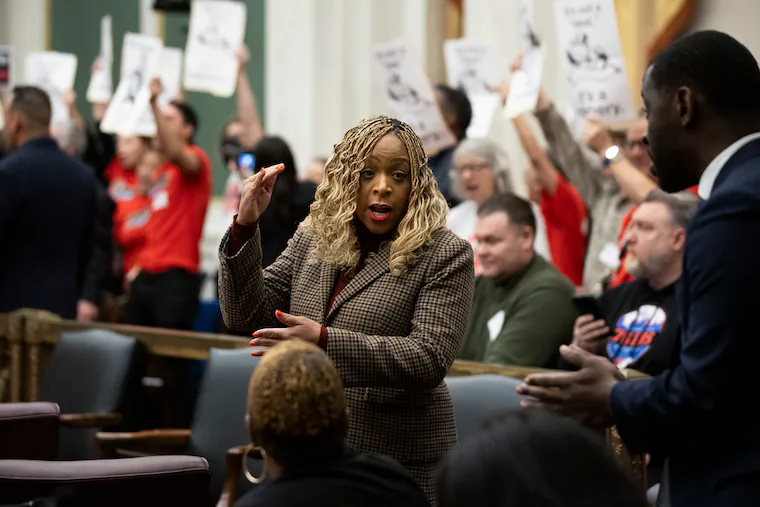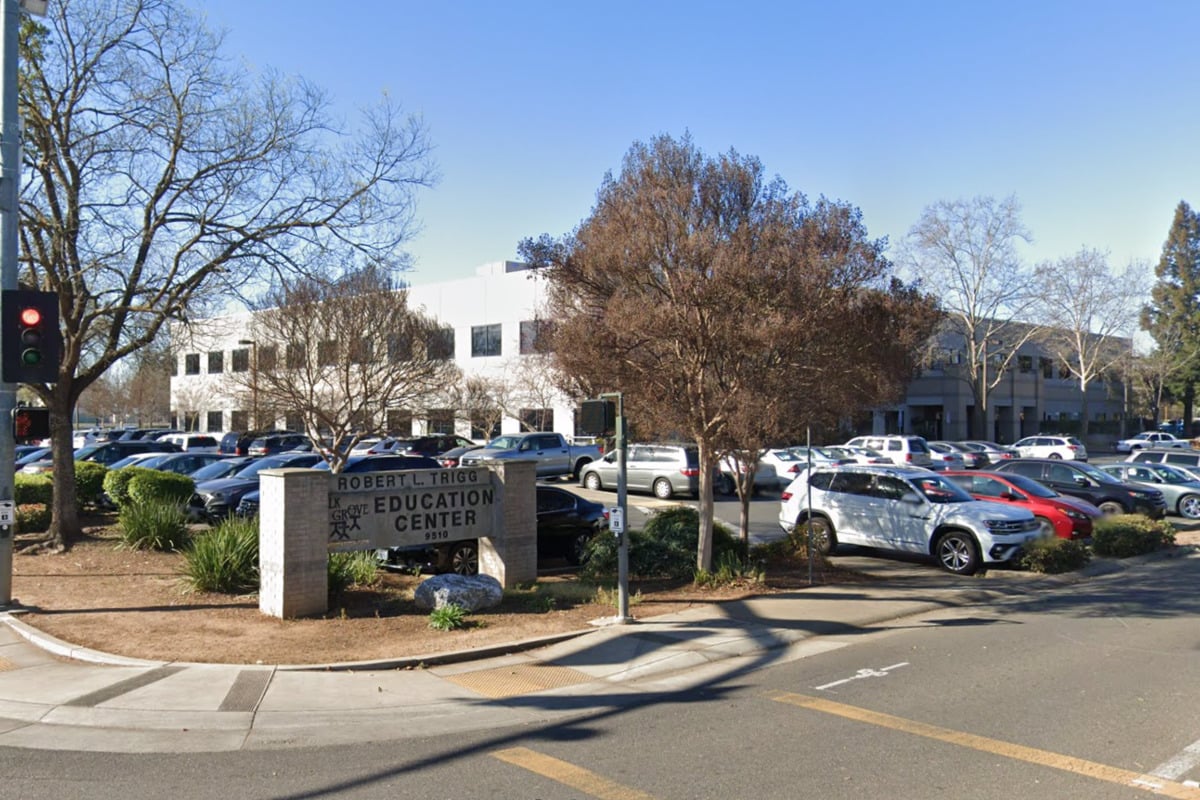City Council seeks to subject West Philly university land dispositions to public oversight

Philadelphia Councilmember Jamie Gauthier introduced legislation Thursday that she says will help University City face a future where mergers and closures of higher education institutions are more common.
The zoning overlay bill would cover much of the University City section of West Philadelphia and is in direct response to St. Joseph University’s recent post-merger sale of much of the former University of the Sciences campus.
It would subject universities to public and community oversight when they sell lots over 5,000 square feet to non-higher education institutions.
“Philadelphia has stood by and watched colleges and universities downsize, merge, close, and even file for bankruptcy,” Gauthier said in a statement. “The merger between the University of the Sciences and St. Joseph’s University and subsequent campus sale is the first major example in my council district, but national trends indicate that it won’t be the last.”
A reaction to St. Joseph’s land sale
St. Joe’s sold the campus south of Woodland Avenue to the Belmont Neighborhood Educational Alliance, a nonprofit that operates charter schools and is led by Michael Karp, who is also one of the larger student housing landlords in the area.
“Potential plans for the space include a new affordable teachers college, which may help alleviate Philadelphia’s chronic shortage of well-qualified and experienced teachers, as well as a potential new school emphasizing public service and leadership,” St. Joe’s said in an email at the time of the sale.
St. Joe’s held over a dozen neighborhood meetings about the future of the former University of the Sciences campus, but when the Belmont deal was announced, Gauthier was furious.
She said the deal did not incorporate any of the community requests garnered at those meetings, which included affordable housing, grocery stores, and other amenities. This legislation comes less than two weeks after the sale was announced.
“St. Joseph’s University values community partnership, which is why we were surprised to see this legislation introduced,” St. Joe’s spokesperson Kevin Gfeller said in an email. “The Belmont Neighborhood Educational Alliance’s educational plans reflect that [community] input and align with our Jesuit mission.”
Where the bill would apply
The zoning overlay bill would apply only in the University City corner of Gauthier’s district and not to properties owned and continuously operated by colleges or universities. For example, if Drexel tried to redevelop a building on its campus, that would not trigger the legislation.
Neither demolition or construction would be allowed on land covered by the overlay until the Philadelphia Planning Commission reviewed the proposal and found it fits with city plans for the area.
The bill lists six other criteria that projects must “satisfactorily address,” including impact on the historic campus fabric and public access to open space and courtyards.
One of those criteria includes preservation of existing campus buildings. The legislation also would not allow demolition permits to be issued in the district unless a building permit has also been issued for the same lot, in an effort to prevent vacant lots.
The overlay would regulate new construction over 25,000 square feet in size by requiring developers to meet with community representatives affiliated with at least five different groups.
During Planning Commission deliberations, at least two of these neighborhood representatives would have to be included in the vote.
“Today, we face a fork in the road where universities feel comfortable selling properties with little regard for neighbors or the lasting consequences,” Gauthier said in a statement. “I’m here to say that is not fair and will not stand, at least not in West and Southwest Philadelphia.”
The bill covers land owned by Drexel, the University of Pennsylvania, and St. Joe’s, and applies only to land in Gauthier’s district — meaning it is likely to pass under the tradition of councilmanic prerogative in which City Council mostly votes unanimously for legislation that only affects a district member’s own territory.
Possible challenges ahead
It is less clear whether the legislation would stand up in court. Skeptics say it could be unconstitutional and challenges the basic precepts of property law, like the right to sell.
Zoning regulates general land uses but not how specific kinds of institutions can use their properties. Having a zoning change triggered only by a change of owners is also legally dubious.
The requirement that the Planning Commission approve plans in accordance with a variety of subjective criteria could also be challenged. “You can’t say we’ll tell you what use is permitted, but only after we have a meeting,” said one prominent zoning attorney, who declined to be quoted by name because he had clients who are effected by the legislation and they had not cleared him to speak publicly.
And the requirement that two community members be seated on the zoning board could likely require a change to the city charter.
Gauthier appears to anticipate legal challenge, including a severability clause in the legislation that would preserve the law if any of its individual components is declared invalid.
Gauthier’s office said she is confident the bill is constitutional.
“As both a legislator and urban planner, Councilmember Gauthier contends this overlay is necessary and within Council’s authority,” said Gauthier’s spokesperson Harrison Feinman.



